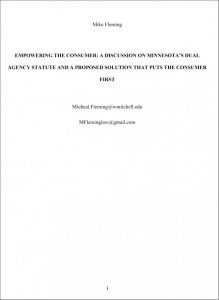How bad is real estate licensing regulation in the United States?
Imagine if the leader of the one organization charged with organizing all the real estate licensing authorities in the U.S. were run by a Realtor. That is exactly what happened (click here). Once again, ARELLO has succumbed to the industry standard of allowing the regulated to be the regulators. Not only are most states infested with Realtors in their enforcement agencies, now the top regulatory and enforcement is again overrun by them. Just visit their sites (www.ARELLO.org and www.ARELLO.com) to see the many references to the Realtor Association.
Realtors have a cartel. They are the second biggest lobby spender in the United States (1st if you don’t count the U.S. Chamber of Commerce), they brag that over 90% of the candidates they supported got elected in the last election, they are the biggest advertiser in most local newspapers and control real estate news content, they practically appoint legislators and regulators, they write licensing laws that protect the industry from consumers, they have lowered the licensing entry standards so low that many states don’t even require a high school diploma, and they work together to ensure that consumers pay far more than they should for real estate services.
What does this mean for consumers? It means that we would likely be far better off without licensing laws that protect Realtors from consumers. If there were no licensing requirements, perhaps property data would be more freely available and Realtors could no longer hold that data hostage. Consumers could buy and sell houses at a fraction of the cost too.
The highly suspect Vision, Mission and Core Purpose statements of ARELLO:
VISION: ARELLO® is the essential resource for making real estate regulation better.
MISSION: ARELLO® supports jurisdictions in the administration and enforcement of their real estate license laws.
CORE PURPOSE: ARELLO® brings regulators together to promote excellence in real estate regulation.







